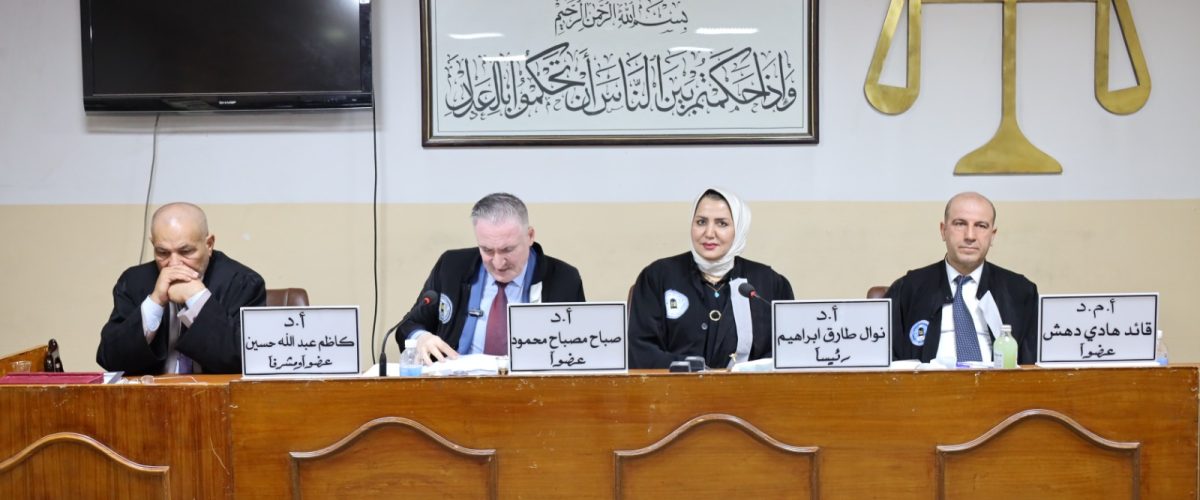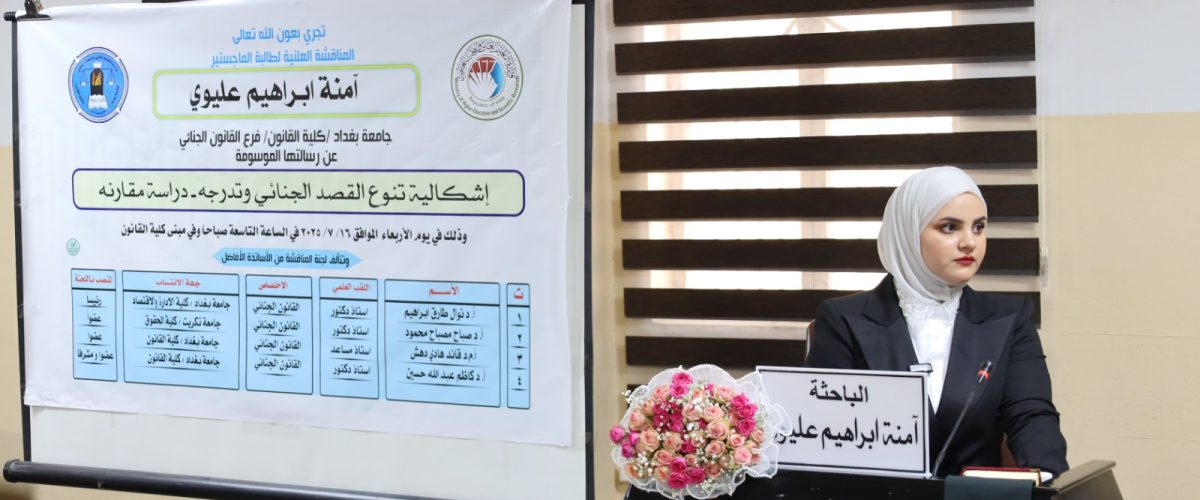The College of Law at the University of Baghdad discussed a master’s thesis entitled “The Problematic Nature of the Diversity and Gradation of Criminal Intent—A Comparative Study” by the student Amina Ibrahim Aluway, in the Criminal Law Department, on Wednesday, July 16, 2025, in the Virtual Courtroom Hall at the college.
The discussion committee consisted of
1. Prof. Dr. Nawal Tariq Ibrahim (Chairman)
2. Prof. Dr. Sabah Musbah Mahmoud (Member)
3. Asst. Prof. Dr. Qaed Hadi Dahash (Member)
4. Prof. Dr. Kazem Abdullah Hussein (Member and Supervisor)
The thesis aimed to shed light on the problem of shortcomings in the general theory of criminal intent, and the resulting diversity and gradation of such intent. This leads to the occurrence of multiple intents in a single crime without a difference in its legal value, thereby creating the problem of blurred boundaries between the degrees of criminal intent, making their judicial application difficult.
The thesis was structured into three chapters: the first addressed criminal responsibility and the concept of criminal intent; the second examined the problematic nature of the diversity of criminal intent; and the third explored the problematic nature of the gradation of criminal intent.
The thesis concluded with several recommendations, the most notable of which are:
1. The Iraqi legislator should amend Article (61) of the Iraqi Penal Code No. 111 of 1969, which refers to “special intent” as a type of intent, considering it an unhelpful and superficial classification. When a crime requires a specific intent with a defined purpose, it merely means that the criminal intent has been specified to include a particular goal from the outset.
2. The Iraqi legislator should delete paragraph (b/34) of the Iraqi Penal Code No. 111 of 1969, which refers to “probable intent” as a degree of gradation of intent, since it adds unnecessary complexity to the criminal justice system. The recommendation is to rely on the two fundamental concepts in determining criminal responsibility: intent and negligence.



